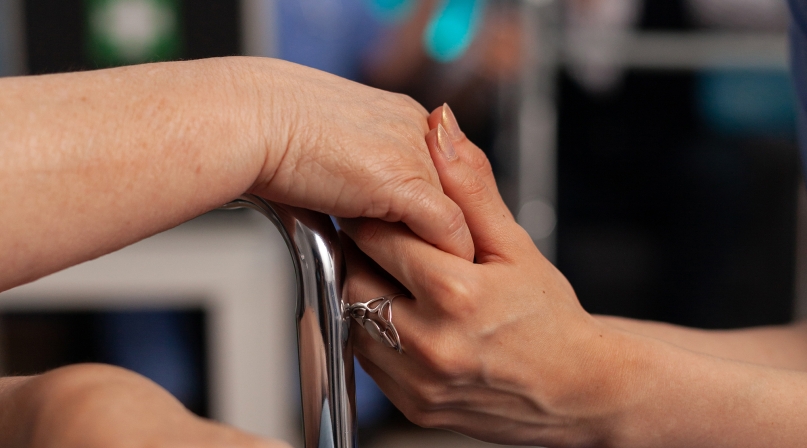Counties Applaud Action to Improve 9-8-8 Suicide and Crisis Lifeline
Upcoming Events
Related News

WASHINGTON – The National Association of Counties (NACo) today applauded an announcement from bipartisan congressional leaders and Federal Communications Commission (FCC) Chairwoman Jessica Rosenworcel regarding steps to improve the 9-8-8 Suicide and Crisis Lifeline. The FCC will issue a notice of proposed rulemaking on georouting for 9-8-8, a priority for NACo and its Commission on Mental Health and Wellbeing.
Since launching in 2022, there have been over seven million calls to 9-8-8, making it an essential tool for counties in supporting the mental health of residents. Counties are responsible for providing a robust behavioral health care continuum, and in June 2023, NACo met with the FCC to emphasize that georouting calls to 9-8-8, meaning directing calls based on a caller’s location rather than their phone’s area code, would enable counties better to support the needs of those callers.
“Georouting calls to 9-8-8 will be a significant improvement to this life-saving system, facilitating faster response times to residents in need while protecting the privacy of those who dial for assistance,” said NACo Executive Director Matthew Chase. “The FCC has taken an important step towards georouting, and we will continue to work with our federal partners as the FCC moves forward with this proposal.”
The issue of 9-8-8 georouting has been a priority for the Bipartisan Senate Mental Health Caucus, co-founded by Sen. Alex Padilla (D-Calif.) and Sen. Thom Tillis (R-N.C.). Last year, following NACo’s advocacy on Capitol Hill and meetings with the FCC, Sens. Padilla and Tillis introduced the Local 9-8-8 Response Act of 2023, with a companion bill introduced by Rep. Tony Cárdenas, co-chair of the House 988 & Crisis Services Task Force.
“We appreciate our intergovernmental partners and allies from the mental and behavioral health community,” said Chase. “Our collective efforts will result in better services and outcomes for residents who need critical care during a crisis.”
Leaders from Los Angeles County, Calif., who have advocated for this measure for over a year, issued statements in support of the FCC’s announcement:
“Expanding our crisis response network has been one of my top priorities for Los Angeles County,” said Los Angeles County Supervisor and NACo Commission on Mental Health and Wellbeing Co-Chair Kathryn Barger. “9-8-8 has certainly been one of the critical tools that helps ensure we have a care first response to individuals experiencing mental health crises. In my role as Chair of the NACo Commission on Mental Health and Wellbeing, I prioritized 9-8-8 support, and led advocacy for this at the White House and on Capitol Hill. However, local government leaders truly needed federal intervention to ensure those calling 9-8-8 are able to connect with a responsive crisis system that is anchored where they live. I appreciate Congressman Cardenas, Senator Padilla, Secretary Becerra and FCC Chairwoman Jessica Rosenworcel for their leadership and dedication to continue evolving 9-8-8. As a result, lives are being saved.”
“9-8-8 has been a game changer for how we respond to mental health crises in Los Angeles County, but the way calls are routed has caused problems,” said Los Angeles County Supervisor Janice Hahn. “While I applaud Senator Padilla and Congressman Cardenas for taking up this issue and putting forward a legislative fix, I appreciate that the FCC recognized the problem and didn’t wait for Congress to act. With this announcement, we are one step closer to making sure all LA County residents can get the professional mental health response they need when they need it.”
Learn more about the county role in implementing the 9-8-8 Suicide and Crisis Lifeline here.
Resource
Toolkit for Counties: 988 Suicide & Crisis Lifeline

Related News

White House Executive Order establishes national substance use disorder response
On January 29, the White House issued an Executive Order (EO) establishing the Great American Recovery Initiative, a new federal effort aimed at coordinating a national response to substance use disorder (SUD).

SAMHSA cancels, reinstates thousands of behavioral health grants
Late on Wednesday, January 14, the Administration announced that thousands of Substance Abuse and Mental Health Services Administration (SAMHSA) grants that had been terminated just one day earlier would be reinstated.

CMS requires state Medicaid suspension upon arrest versus termination
Effective January 1, 2026, federal law now requires states to suspend, rather than terminate, Medicaid coverage when an individual is incarcerated.